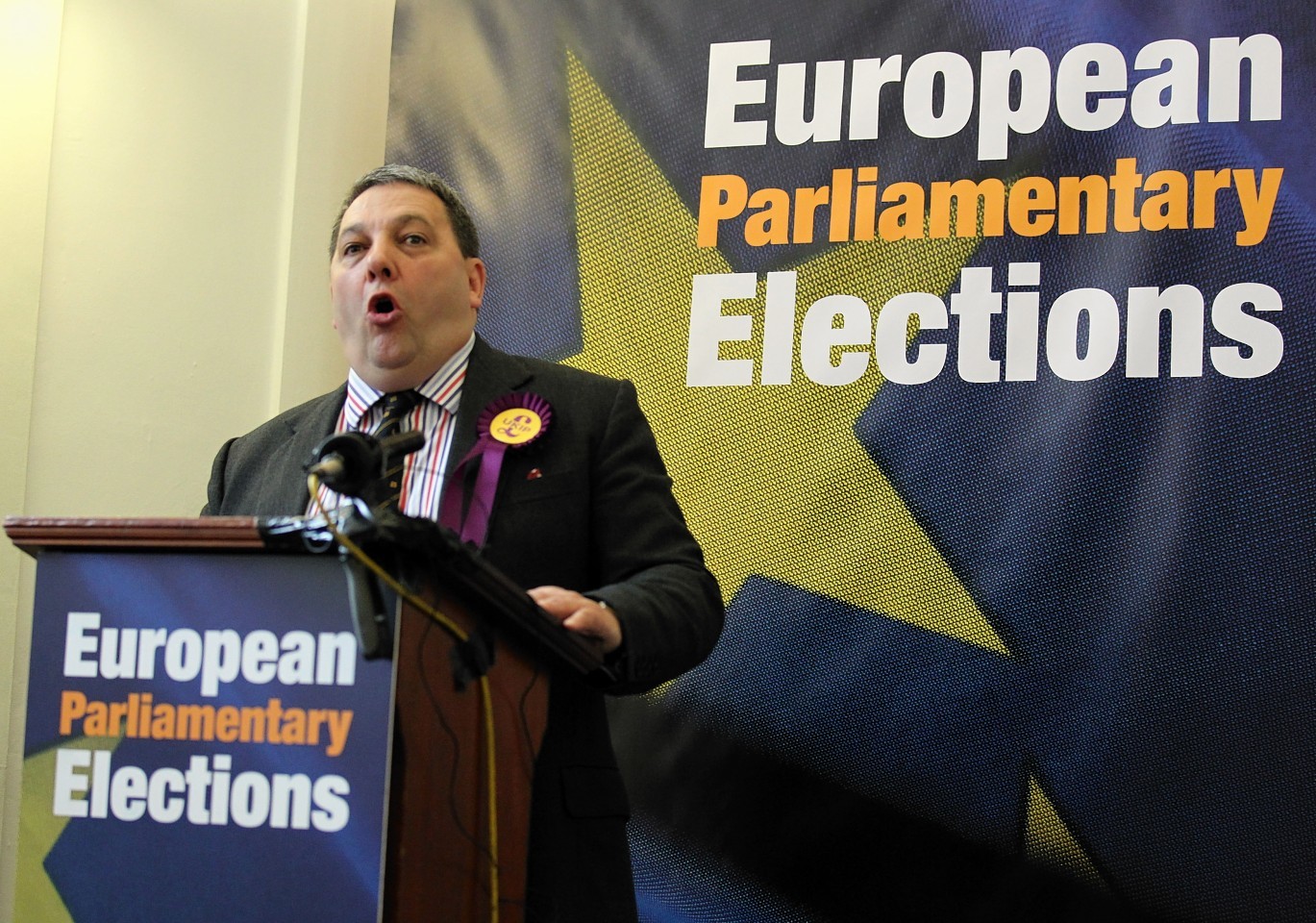The UK Independence Party (Ukip) has sent a shockwave through the Scottish political establishment after winning its first parliamentary seat.
Nigel Farage’s anti-EU party picked up a 10.4% share of the Scottish vote in the European elections, gaining the sixth and final seat north of the border.
Both Labour and the SNP managed to hold on to their two seats each, while the Tories remained at one.
The Liberal Democrats suffered a demoralising defeat as the party fell behind the Greens, losing its only Scottish MEP.
As he savoured his victory, Ukip’s successful lead candidate David Coburn declared: “The Ukip revolution has now come to Scotland.
“I will do my best to make sure I highlight the problems of the European Union.”
The official results of Thursday’s ballot were delayed until yesterday to allow for counting in the Western Isles. Total turnout across Scotland was 33.5%, up from 28.5% in 2009.
Due to the convoluted proportional voting system, the SNP had to increase its share of the vote beyond one third to keep Ukip out. Instead the Nationalist vote fell slightly to 387,503 – a 28.9% share.
Labour saw its vote increase by five points to 25.9% with 348,219 votes, while the Conservatives polled 231,330 votes (17.2%).
The Liberal Democrats won 95,319 votes (7.1%), having been beaten by the Greens with 108,305 votes (8%).
Returning Labour MEP David Martin said SNP leader Alex Salmond had helped Ukip by polarising the debate, making it out a choice between the two parties.
Mr Coburn agreed and thanked Mr Salmond for his “tremendous help” but added: “I think it is more to do with people in Scotland having the same concerns that people in England have.”
Deputy First Minister Nicola Sturgeon denied Mr Salmond was wrong to portray the election as a choice between the SNP and Ukip on the eve of polling day, having earlier dismissed the anti-EU party as irrelevant north of the border.
“We fought the campaign as we saw it. The results show we were correct in that,” she said.
“It is right to challenge arguments that we think are wrong.
“The comparison between the result of Ukip in Scotland and the rest of the UK speaks volumes.”
